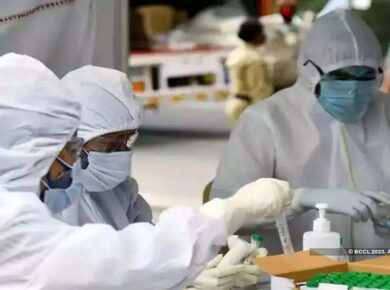Leveraging India’s Success
According to Tara L Prasad, Senior Manager at UNICEF’s Centre for Health Emergency Strategy and Partnerships, India stands as a prime example of successfully nurturing a robust domestic pharmaceutical industry capable of meeting global demands. Prasad emphasized India’s potential to share its expertise and lessons learned in fostering the pharmaceutical sector with other nations striving to enhance their capacities.
Key Areas of Expertise
Prasad highlighted several key areas where India can offer valuable insights, including incentivizing the private sector, establishing robust regulatory and quality assurance systems, and fostering a globally competitive industry. Additionally, India’s experience in creating an enabling environment through investments in human and physical capital and transitioning towards research and development innovation can provide valuable guidance to aspiring nations.
Lessons from COVID-19
Reflecting on the lessons learned from the COVID-19 pandemic, Prasad stressed the importance of prioritizing equity across the value chain and engaging stakeholders from low- and middle-income countries from the outset. She emphasized the need for a comprehensive toolkit comprising vaccines, tests, treatments, personal protective equipment, and ancillary supplies to effectively combat health emergencies.
Multi-Sectoral Approach
Prasad underscored the significance of adopting a multi-sectoral approach, encompassing water, sanitation, hygiene, and infection prevention control measures, to mitigate the cascading effects of health emergencies. Geographical diversification of medical countermeasure manufacturing was also highlighted as crucial for enhancing resilience against global shocks.
Strengthening Health Systems
Prasad advocated for strengthening health systems, particularly primary healthcare systems at the community level, to bolster preparedness and ensure effective delivery of medical countermeasures. Community engagement was identified as essential for reducing hesitancy and enhancing trust in medical interventions.
Global Collaboration and Equity
Prasad emphasized the importance of global collaboration, exemplified by initiatives like the Access to COVID-19 Tools Accelerator (ACT-A), in promoting equitable global health outcomes. She called for sustained efforts to prioritize equity and reach vulnerable populations, including women and children, in accessing medical countermeasures.
Looking Ahead
In conclusion, Prasad urged for continued vigilance and preparedness between pandemics to ensure a diversified vaccine and product portfolio, expanded production capacity worldwide, and resilient health systems. Equity, she reiterated, must remain central to global collaboration efforts, with a focus on reaching the most vulnerable populations.










